The '90s was a big decade for anime. Iconic series like Neon Genesis Evangelion and Cowboy Bebop were born, shows that are still presented as the gold standard of what the medium can achieve. Studio Ghibli continued their string of soon-to-be classics, helping to cement Hayao Miyazaki into a globally-recognized “auteur” status, a title usually reserved for the creators of live-action fare. Meanwhile, Dragon Ball Z, Gundam Wing, and others made their debut on the programming block Toonami, effectively introducing anime to an entire generation of Americans who may have otherwise never been exposed to it.
But what about the importance of Pokémon? That was pretty big, too, right?
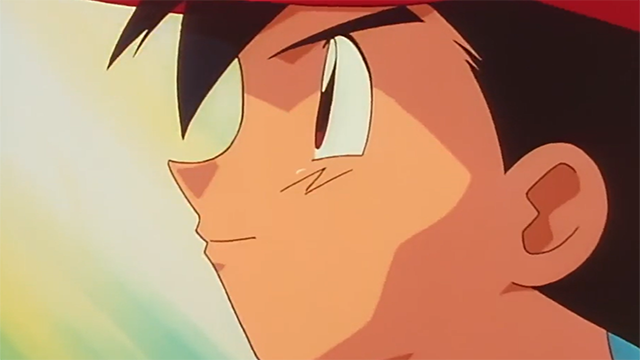
Obviously, the status of the Pokémon anime as it relates to Pokémon as a whole is clear. There has perhaps never been a franchise with more coherent brand synergy, none better at directing traffic so fans of one aspect could be easily guided to another. Aided by an almost supernaturally compelling catchphrase “Gotta catch ‘em all!,” the uncertain development and angst surrounding the first set of titles in the core game series Red and Blue were quickly left in the rearview mirror. Pokémon is seemingly an undefeatable pop culture hydra with the anime serving as one of its many heads.
So how does Pokémon fit in the grand scheme of anime and what it can give to us? Because with all of that in mind, it’s hard not to look at it with a kind of cynicism, viewing it less as a fictional series with all the pros and cons that come with it, and more as an advertisement for itself and other parts of the franchise that has lasted over 20 years. However, I believe the Pokémon anime can be, depending on the specific section, very good at times. And though the explosion of “Pokemania,” as it was dubbed when the franchise landed in the United States, seemed to render it as an extended commercial urging kids to get their parents to buy them a Game Boy as soon as the "PokeRap" finished, I think the early parts of the series are particularly strong.
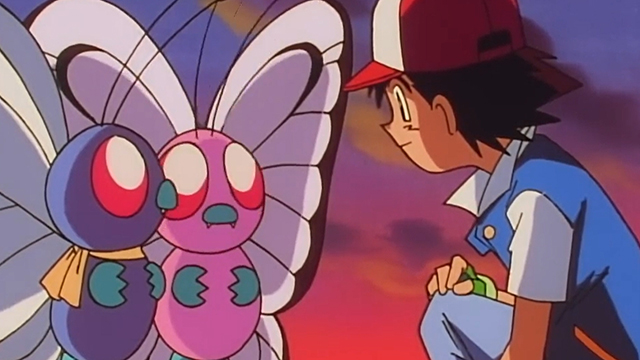
Because while the anime has formed a kind of cyclical pattern in its storytelling, one that allows newcomers to easily latch onto the series whenever they happen to discover it, I think the portions set in Kanto and Johto are extremely cool to examine. The space from the first time Ash Ketchum wakes up too late to grab one of the three “starter” Pokémon from Professor Oak to the time he says goodbye to Misty and Brock at the crossroads following the Silver Conference contains a really touching narrative. One about growing up and learning to rely on others and then, eventually, learning to rely on yourself.
When we first meet Ash, he can barely keep things together. He’s desperate to be a Pokémon Master, but clueless when it comes to most of the techniques involved in actually doing that. He’s stubborn, but his confidence often reveals itself to be brittle bravado, a ten-year-old puffing his chest out only to be deflated when overtaken by an obstacle. His travel partners, Misty and Brock (and Tracey Sketchit for a little while,) obviously adore him, but their greatest shared trait is likely patience. Ash has a lot of learning to do.
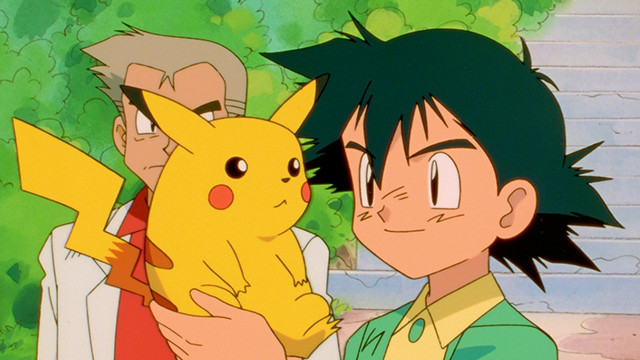
This learning is usually slow and painstaking. Critics of the series are often quick to point out that Ash rarely wins his gym battles outright, something that’s a requirement to progress in the games the series is based on. Thus, more important than a solid KO is the lesson learned due to the battle, often something centered around taking care of your Pokémon, yourself, and other people. The “monster of the week” structure usually has Ash learning these lessons again and again, like a child that needs to be politely reprimanded until they fall out of a bad habit.
As the series moves from Kanto to the Johto region, Ash gains legitimate wins with higher frequency, gathering experience while his style remains eager, clumsy, and definitively Ash. His rivalry with Gary Oak — one initially informed by Ash’s seeming inadequacy and Gary’s loud, yet often precise assurance — evens out. At the end of the Indigo League in the Kanto region, Ash finally gets to battle Gary and loses. Then, in the Johto League tournament, Ash defeats Gary and the two make amends thanks to Ash’s defeat of his bully and Gary’s newfound serenity. It’s a nice payoff to their relationship, and Gary’s change of heart reflects the themes of personal growth found in the Original Series.
Meanwhile, Ash’s personal growth often comes with much more heartache. In “Bye Bye Butterfree,” he bids farewell to his first-ever caught monster because it would be happier with its own kind. A few episodes later, in “Pikachu’s Goodbye,” he seems all too ready to let Pikachu live with a pack of the little yellow critters, likely because his experience with Butterfree indicated that it was the right thing to do. Of course, Pikachu comes back to him, because he’s Ash’s ride or die.
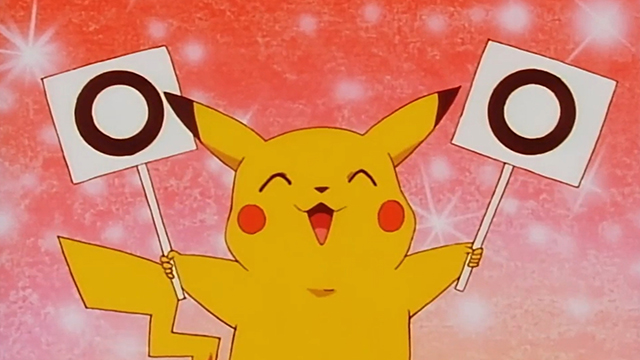
Another relationship Ash learns from is the one with Charizard. Evolved from an abandoned and emotionally distraught Charmander, Charizard is rebellious to the extent that it causes Ash’s Indigo League loss, not because it gets knocked out but because it just doesn’t feel like fighting anymore. What follows is one of the most disheartening scenes in the series, with Ash shouting in anger and sadness at his Charizard to continue while Charizard just doesn’t respect his trainer enough to stand up. Though they eventually gain a sense of mutual reverence, their partnership is marked by this uncertainty.
And finally, the ending, which sees Ash, Misty, and Brock go their separate ways, recalls one of the franchise’s most resonant homages, that of the '80s film Stand By Me. Referenced in the opening moments of the first game, the movie about setting off on your own adventure as a youth and learning where nostalgia ends and the harshness of growing up begins mirrors the ethos of the franchise constantly. At the end of that film, the characters depart one another and the main protagonist muses to himself, “I never had any friends later on like the ones I had when I was twelve. Jesus, does anyone?”
You can get the same feeling from the affirmations of the importance of their friendship Ash, Brock, and Misty make when they head off on their own (though Brock quickly re-joins Ash in the next season of the anime). It’s here that Pokémon displays why it deserves its place among the notable anime of the '90s, not because of its massive marketing push (though that certainly helped its popularity) and not because of how it retold the story of the games (which, as adaptations go, is pretty hit or miss).
.
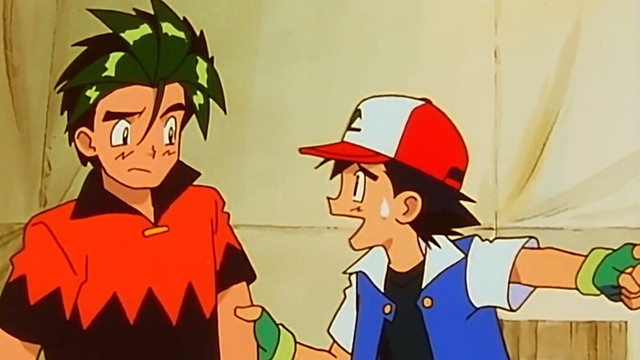
Instead, it’s a story about growing up. By the end of Ash’s time in Johto, it becomes clear that strength was never the objective, that the point of the whole affair was not Ash becoming a "Master." It was about teaching Ash enough so that when the time came for him to go out on his own, he could. And though he finds new companions in the regions to come pretty quickly, the impact of this is not diminished. If you began watching the show when it first appeared in America in 1998, you likely grew up with Ash to an extent, and you likely experienced some major life events during that time, whether it was going to a new school or facing some kind of family change or attempting to achieve some new, grand goal.
Ash and the Pokémon anime’s message was that you could do it. That the trials you’d experienced and the lessons you’d learned and the relationships you’d made had prepared you for it. And that while the future seems scary and unknowable, it isn’t insurmountable. Pokémon teaches you that you’ll be okay. That sounds pretty important to me.
Daniel Dockery is a Senior Staff Writer for Crunchyroll. Follow him on Twitter!
Do you love writing? Do you love anime? If you have an idea for a features story, pitch it to Crunchyroll Features!
Source: Latest in Anime News by Crunchyroll!


Comments
Post a Comment